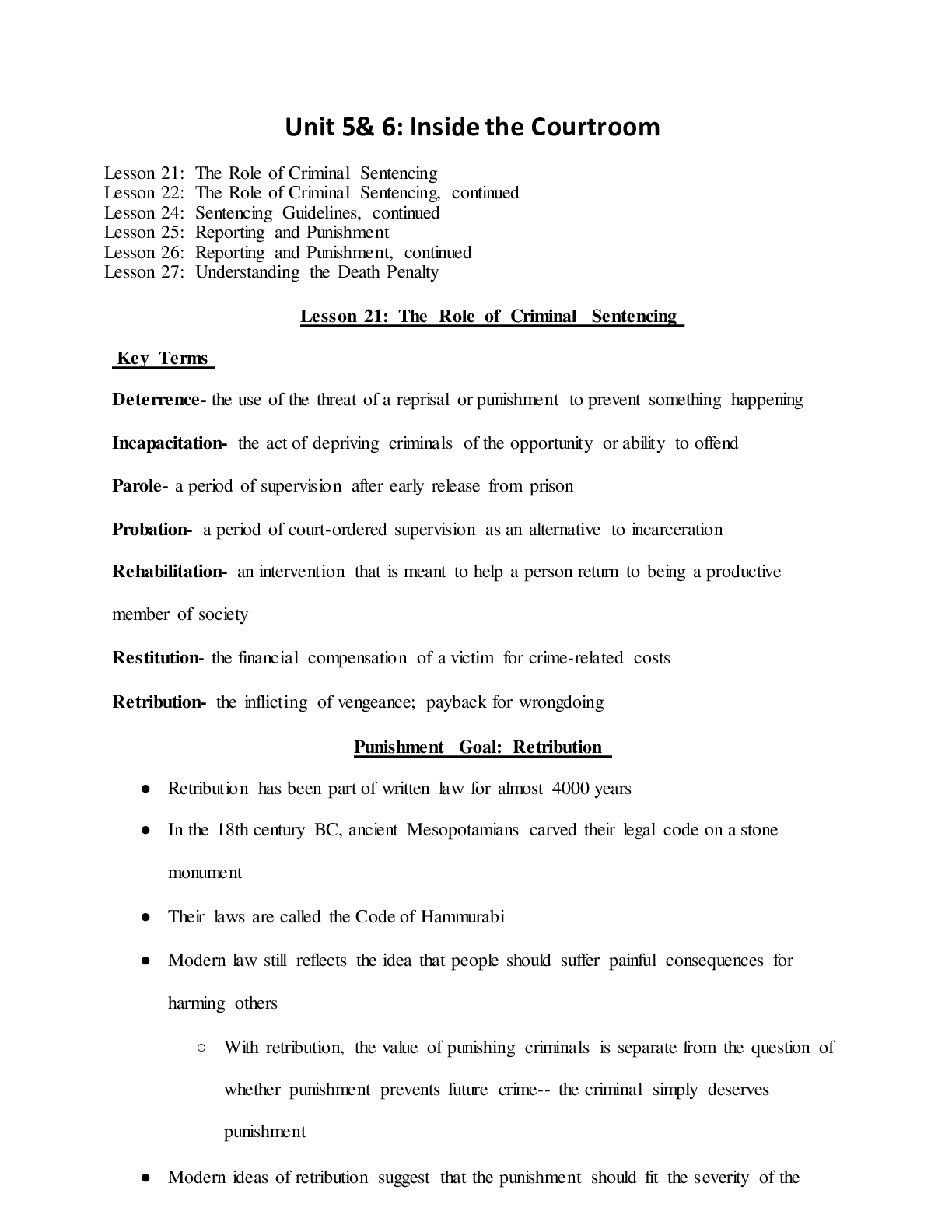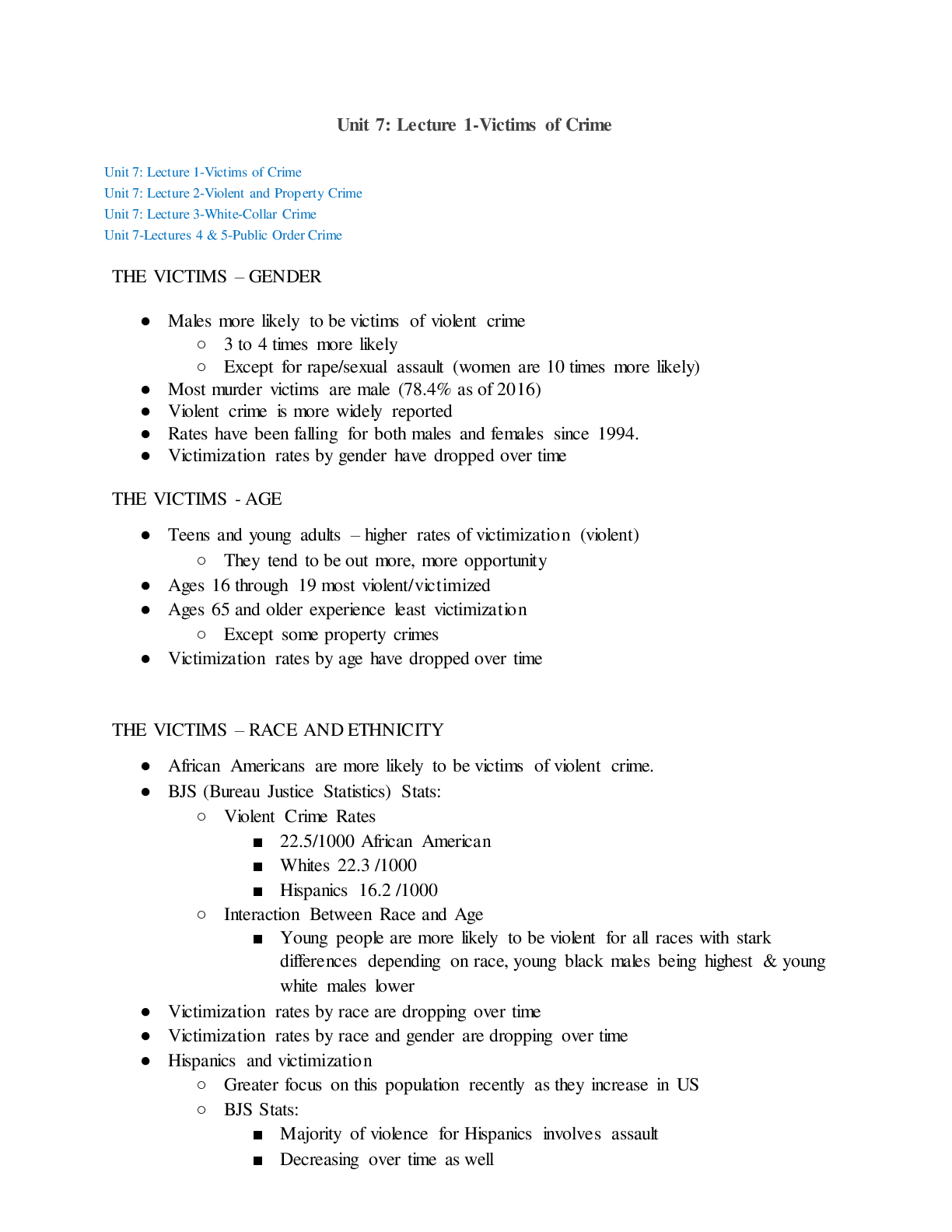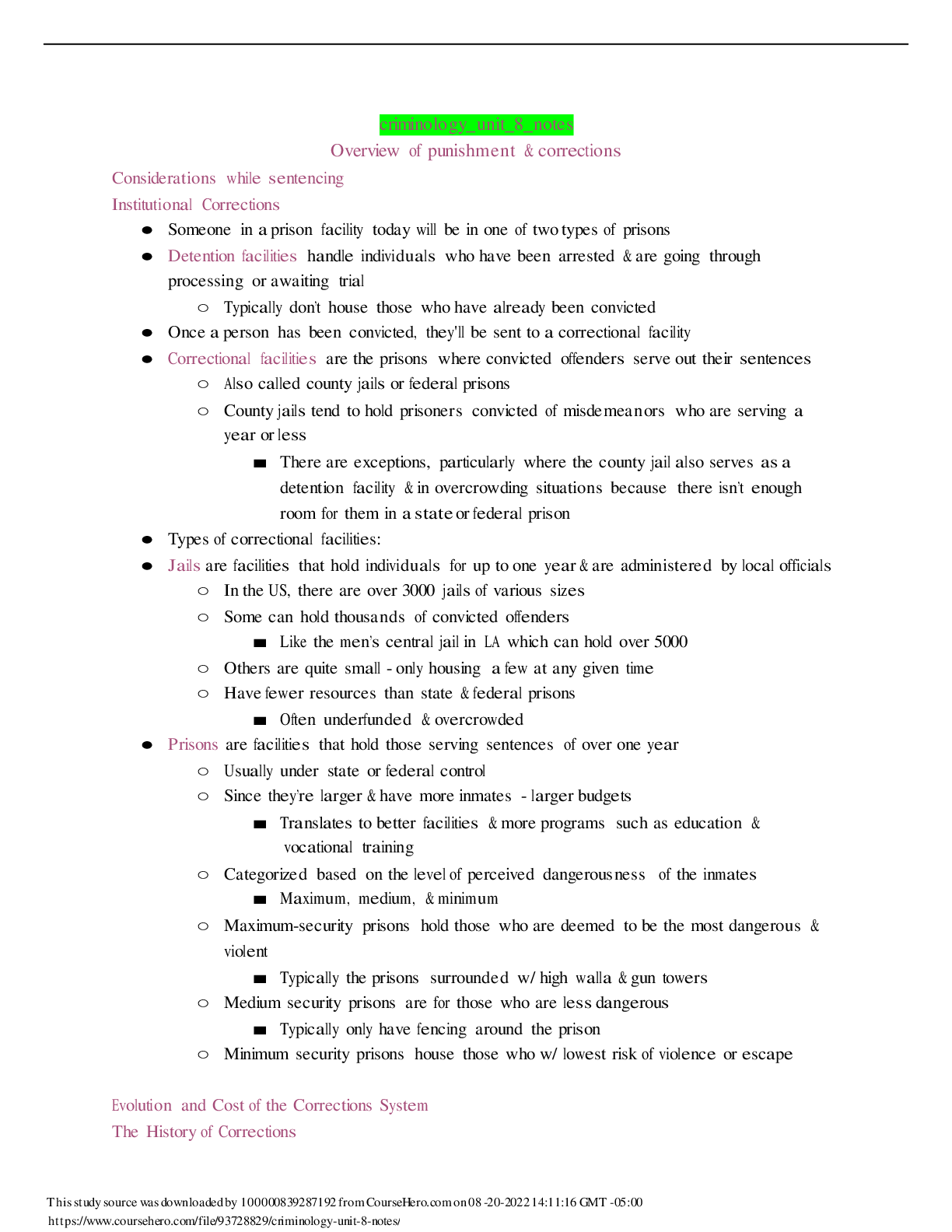Criminology > Summary > CRM_1300___Notes latest with summary (100% well enlightened) Criminology notes (All)
CRM_1300___Notes latest with summary (100% well enlightened) Criminology notes
Document Content and Description Below
CRM_1300___Notes Crime Definition: - Any form of human behaviour that is designated by law as criminal and subject to penal sanction A Composite Definition of Crime: - “Crime is a violatio... n of societal rules of behaviour as interpreted by a legal criminal code created by people holding social and political power. Individuals who violate these laws are subject to sanctions by statue authority, social stigma, and loss of status” What Is a Crime? - This approach implies that the definition of crime is a function of: - The beliefs, morality, and direction of social authorities - Applied uniformly to everyone in society - Therefore crime is a social phenomena Dark Figure Crime: - Never reported crimes to the police - Don't report it because insurance increases - Ex. Broken into car, house Criminology Definition: - Is the scientific study of the: - Nature - Extent - Causes - Management or control of criminal behavior The Criminological Enterprise: - Criminal statistics - Create valid, reliable measures of crime - International crime trends - Sociology of Law - Interested in the role of criminal law in shaping society - Theory construction - Explaining, predicting criminal behaviour - Can’t predict a person's motive for crime - Poverty areas have higher crime rate - Criminal behaviour - Determining nature, cause of crime patterns - Penology - Correction and control of criminal behaviour - Victimology - Nature, cause of victimization (rape, assult, domestic violence) - Victimization Surveys (random sample of the population in which people are asked to recall and describe their own experience of being a victim of crime) The State Influx: - The State is an institution that claims the exclusive right to exercise force in a given territory through the use o the police and armed forces - Monarchy: - Transfers power from generation to generation within a single family - Earlier monarchies were absolute - Modern ones are generally constitutional - Ex. Britain - Democracy: - Generally is representative rather than fully participatory - Affluent industrial societies tend to be democracies - Ex. Canada, US - Authoritarianism: - Is a political system that denies popular participation in government - Ex. China, Russia, North Korea - Totalitarianism: - Is political system that extensively regulates people's lives - Ex. China (one-child policy), Canada (regulate vaccines), Capital punishment Inchoate Crimes: - A criminal offence that is committed when the accused person seeks to bring about the commission of a particular crime but is not successful in doing so. - Three inchoate offences in the Criminal Code: - Attempt (is focused on a person’s intention to commit a crime) - Conspiracy (An agreement by two or more persons to commit a criminal offence) - Counselling (Procuring (persuading), soliciting (offering services), or inciting (encouraging) another person to commit a crime) Sociological Views of crime: - Chapter 1 pg.10 Law Definition: - A rule with consequences Rule of Law: - We accept that laws are rules of society and when transgressed will have repercussions Vagrancy Laws: - William Chambliss: - England 14th Century: - Church - Black Plague - Crusades Leads to Class Conflict - The Vagrancy Laws constituted an abundance of cheap labour to England's ruling elite, during a period when serfdom was breaking down and the pool of labour was depleting - Work for the Queen or get thrown in jail/dungeon to be tortured Interest Groups and the Law: - Some laws embody a consensus or agreement that the act is wrong: assault, theft, etc. - History also reveals the influence of special interest groups and "moral entrepreneurs" (Criminalizing certain drugs) Norms: - Are rules and expectations by which a society guides the behaviour of its members - They may be either prescriptive (Don't) or proscriptive (Do) - As we internalize norms, we respond critically to our own behavior through shame or guilt - There are two special types of norms that were identified by William Graham Sumner: - Mores (right and wrong) - Opening the door for someone vs. Murder [Show More]
Last updated: 2 years ago
Preview 1 out of 59 pages

Buy this document to get the full access instantly
Instant Download Access after purchase
Buy NowInstant download
We Accept:

Reviews( 0 )
$8.00
Can't find what you want? Try our AI powered Search
Document information
Connected school, study & course
About the document
Uploaded On
Aug 21, 2022
Number of pages
59
Written in
Additional information
This document has been written for:
Uploaded
Aug 21, 2022
Downloads
0
Views
111
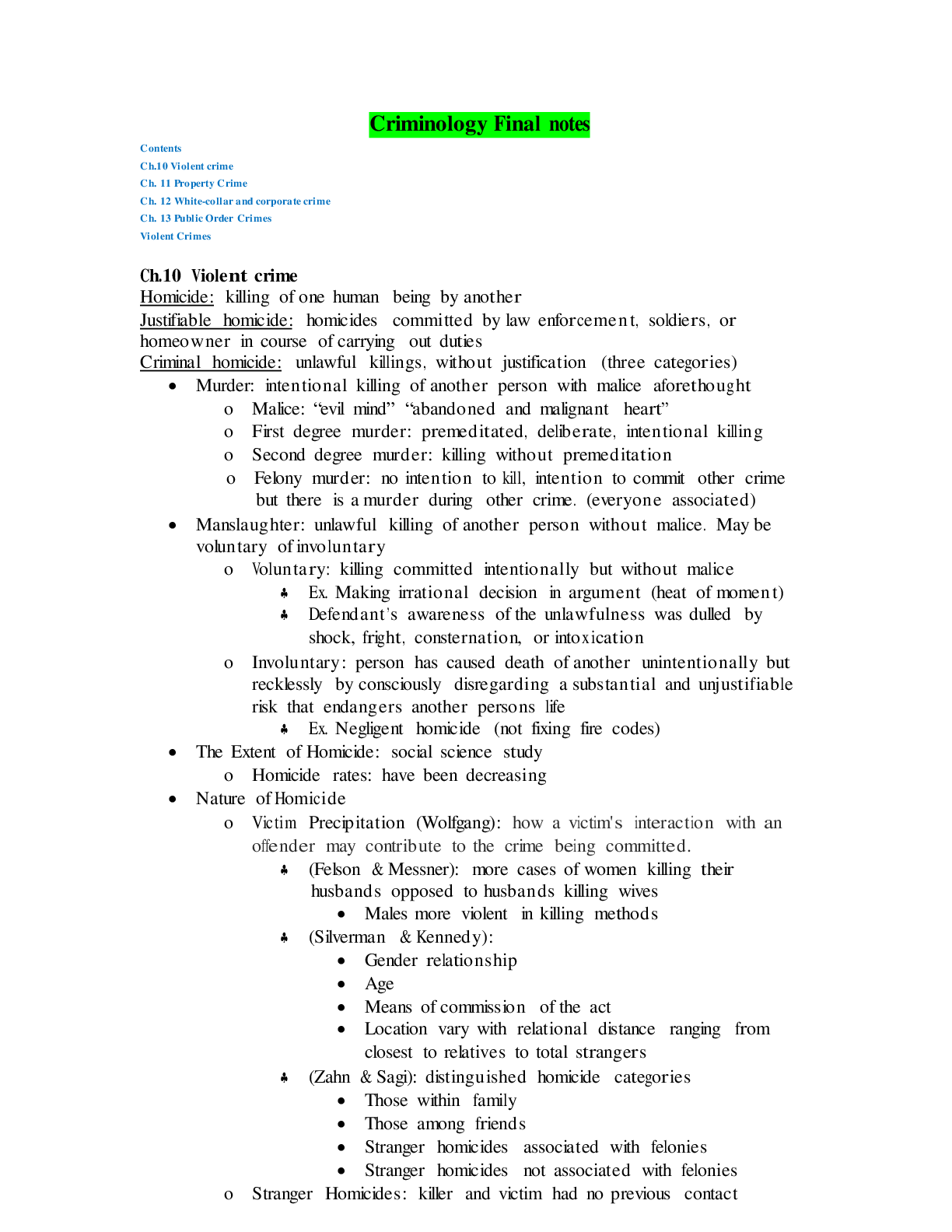

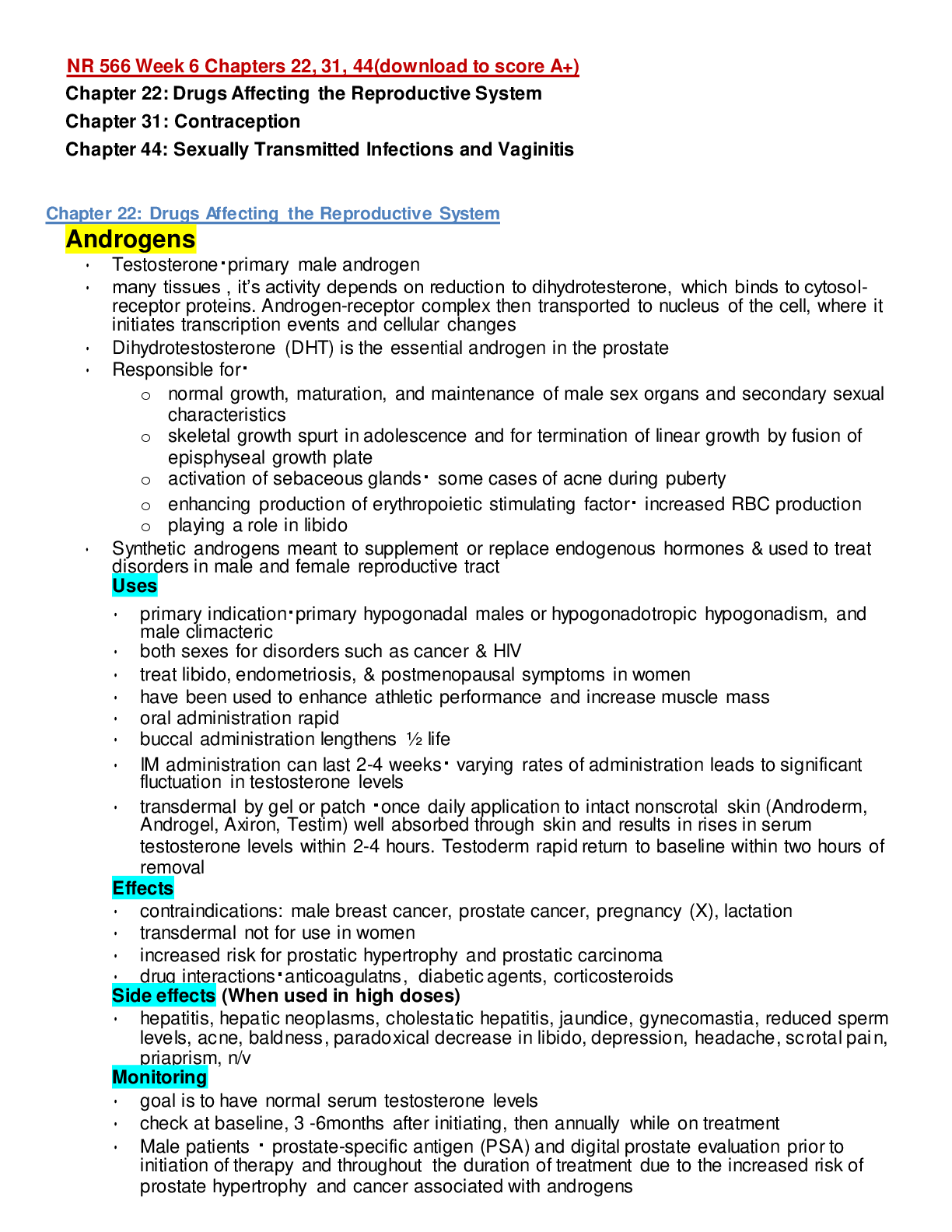
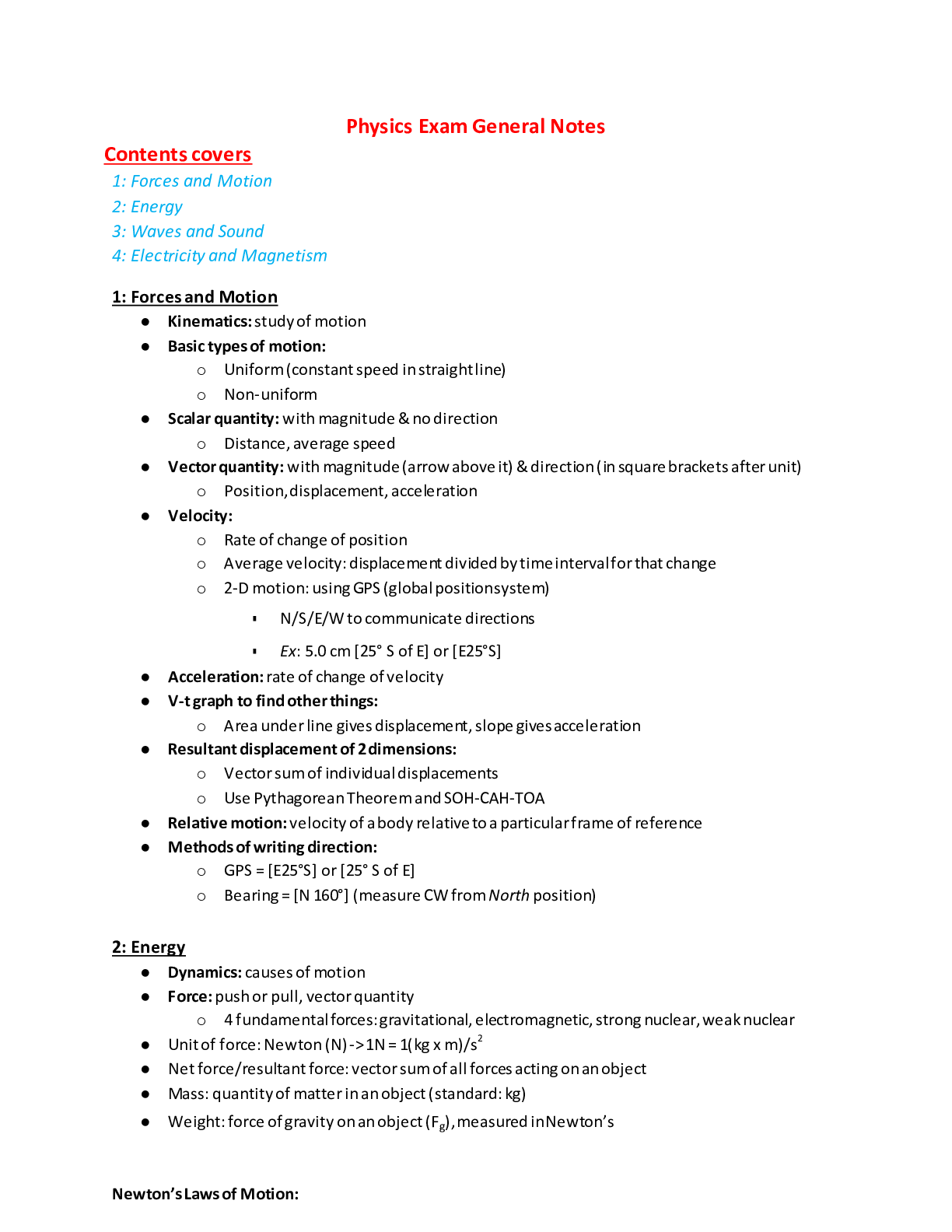
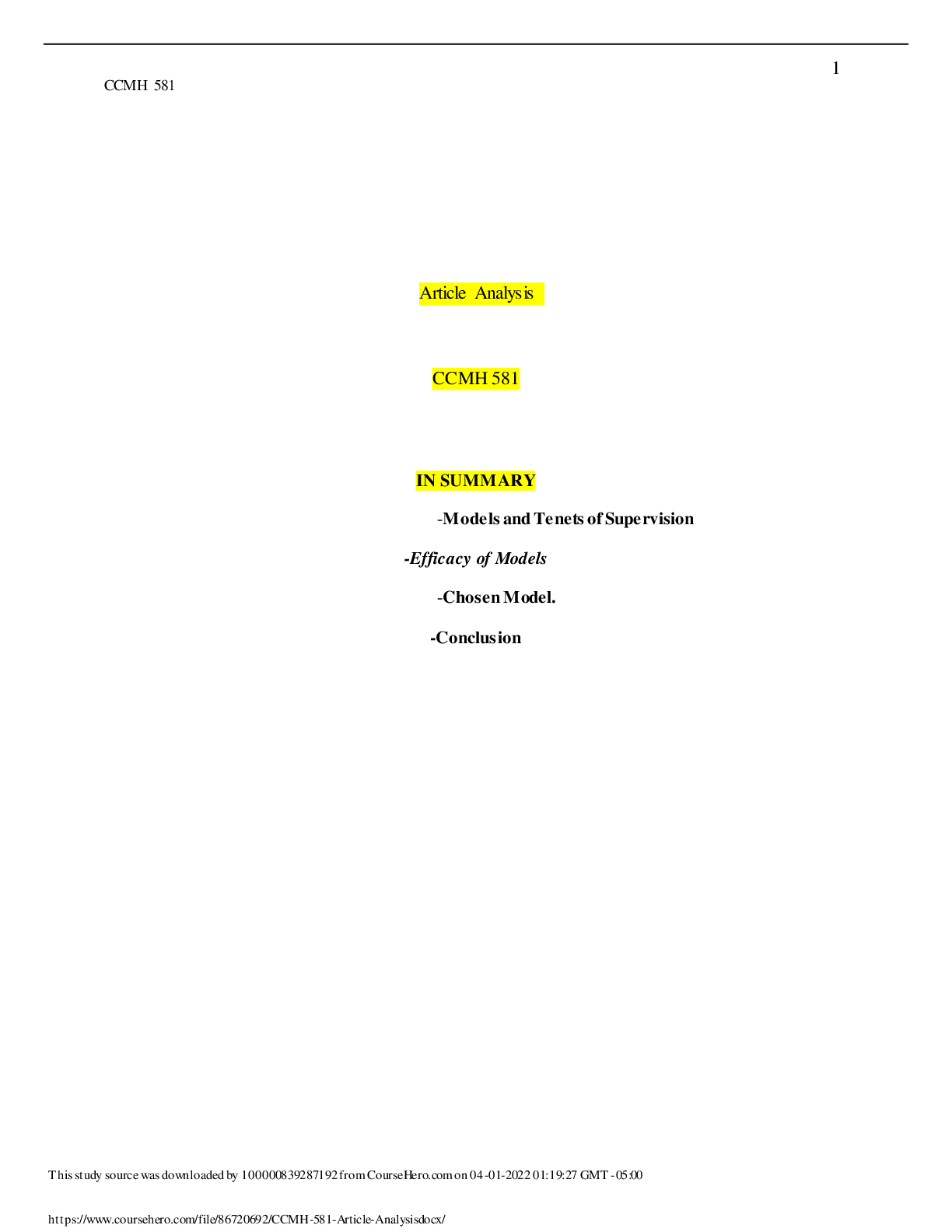
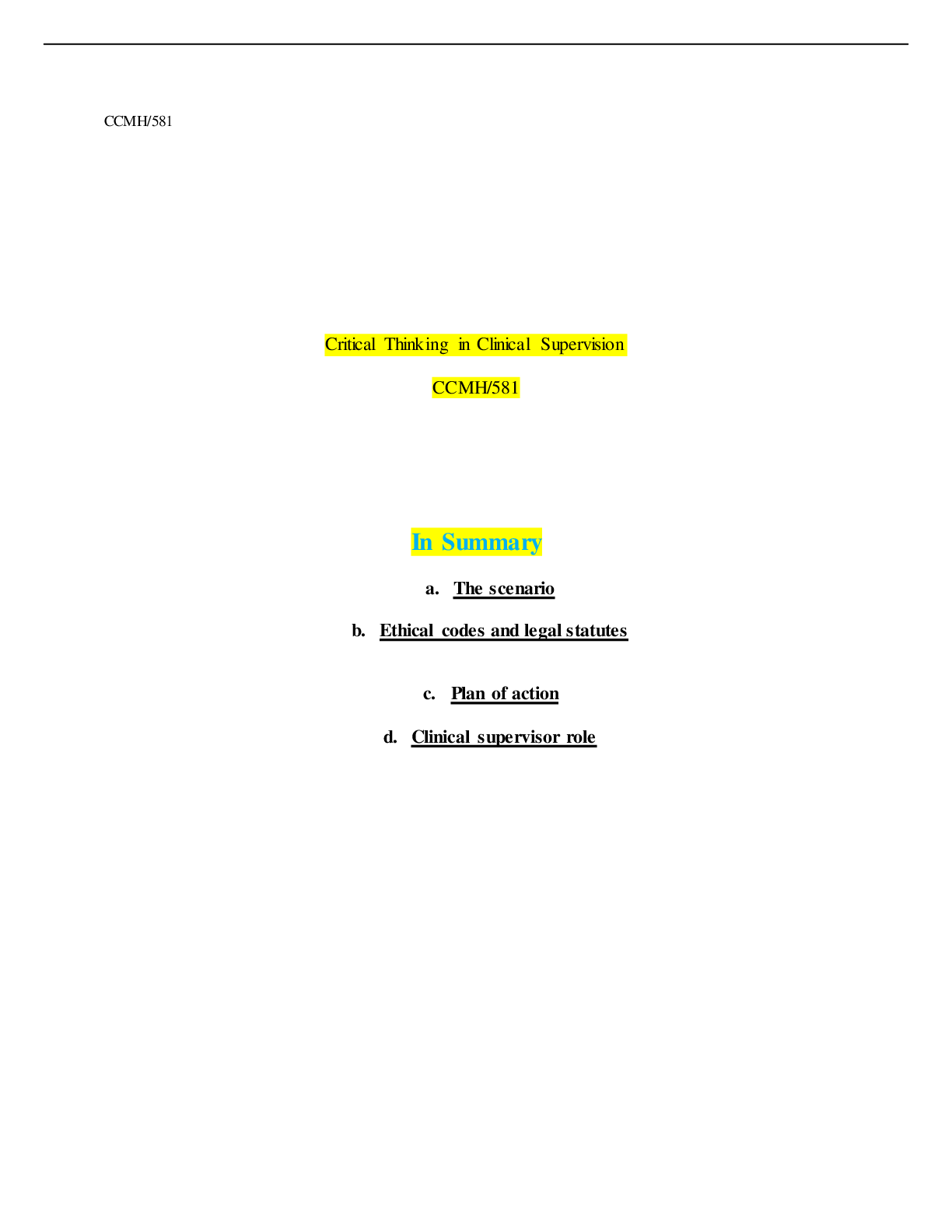
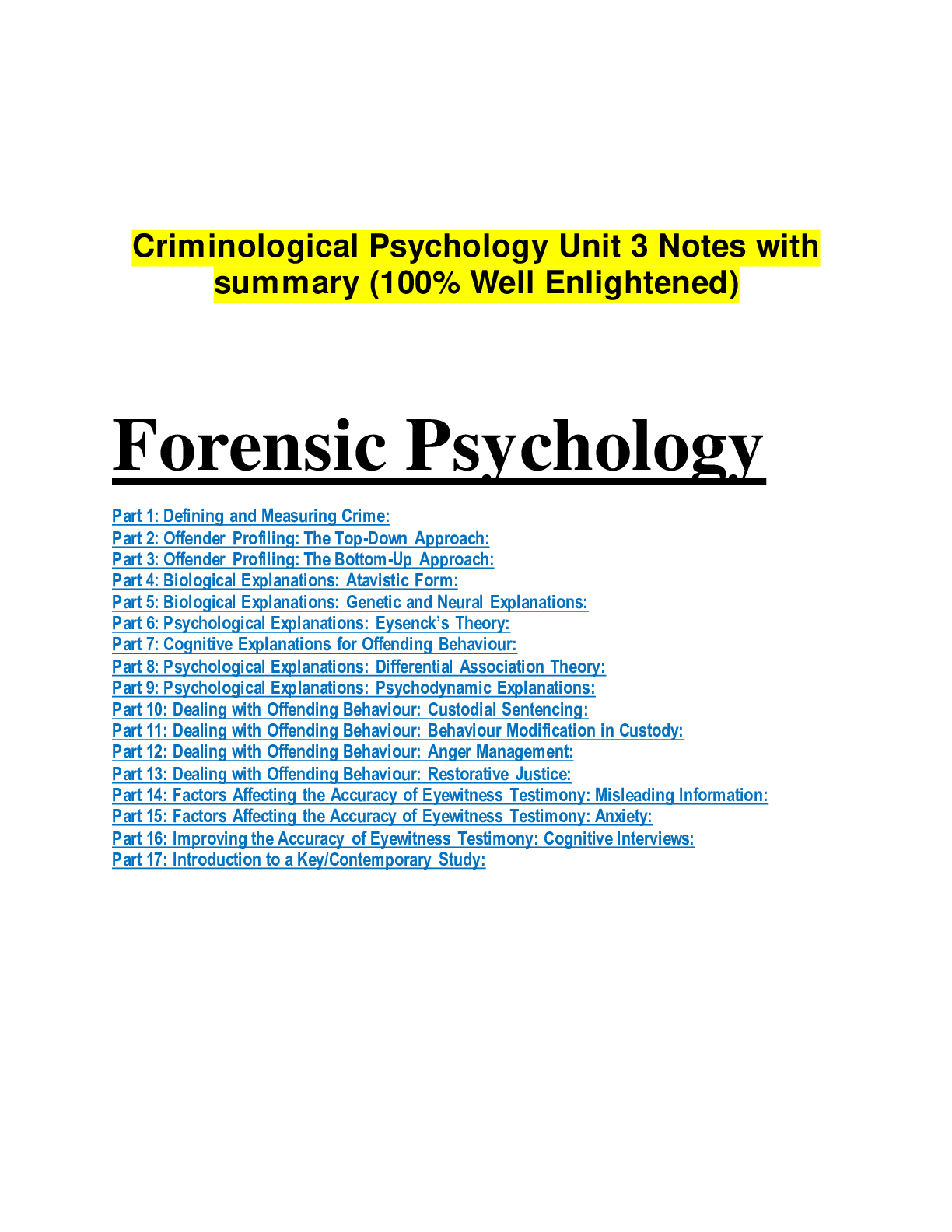
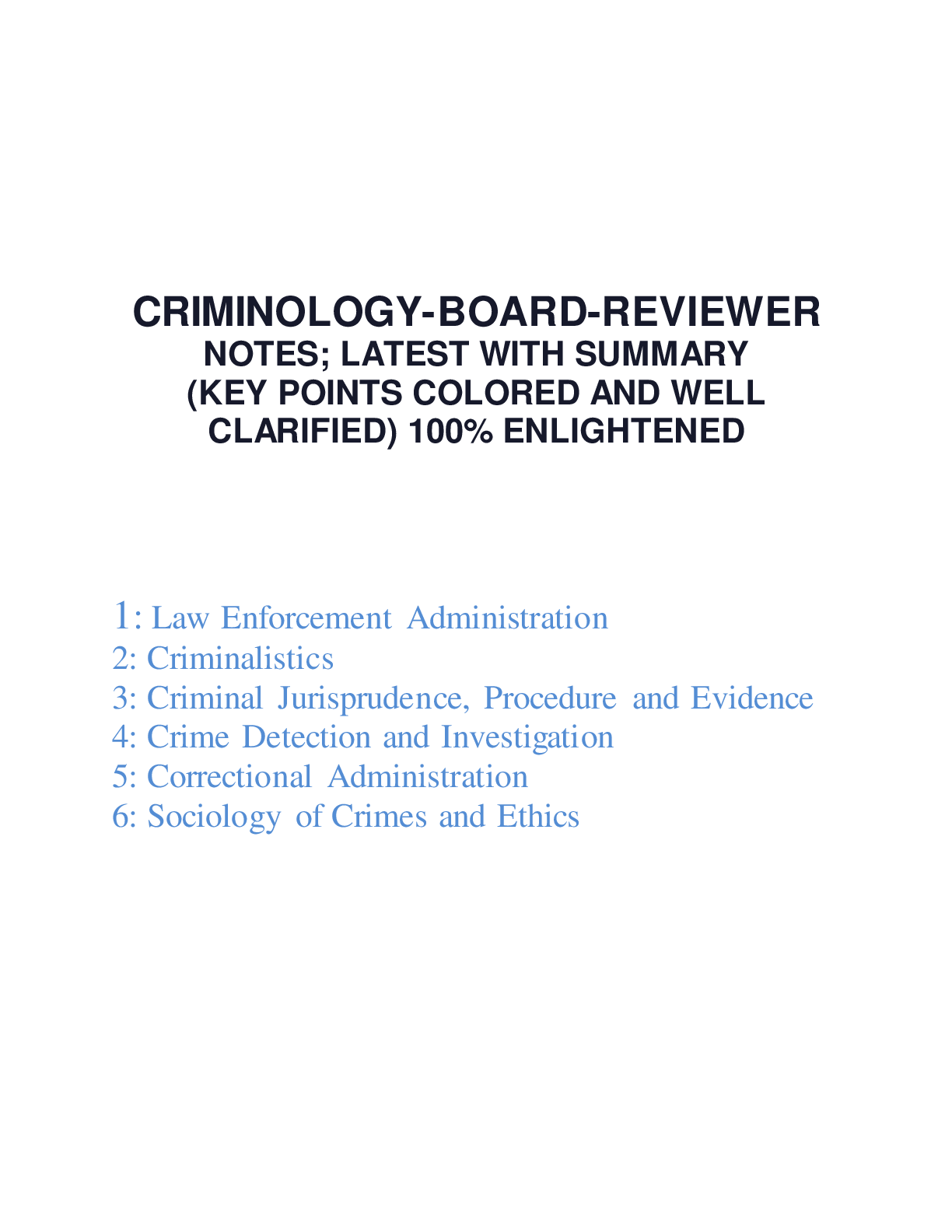
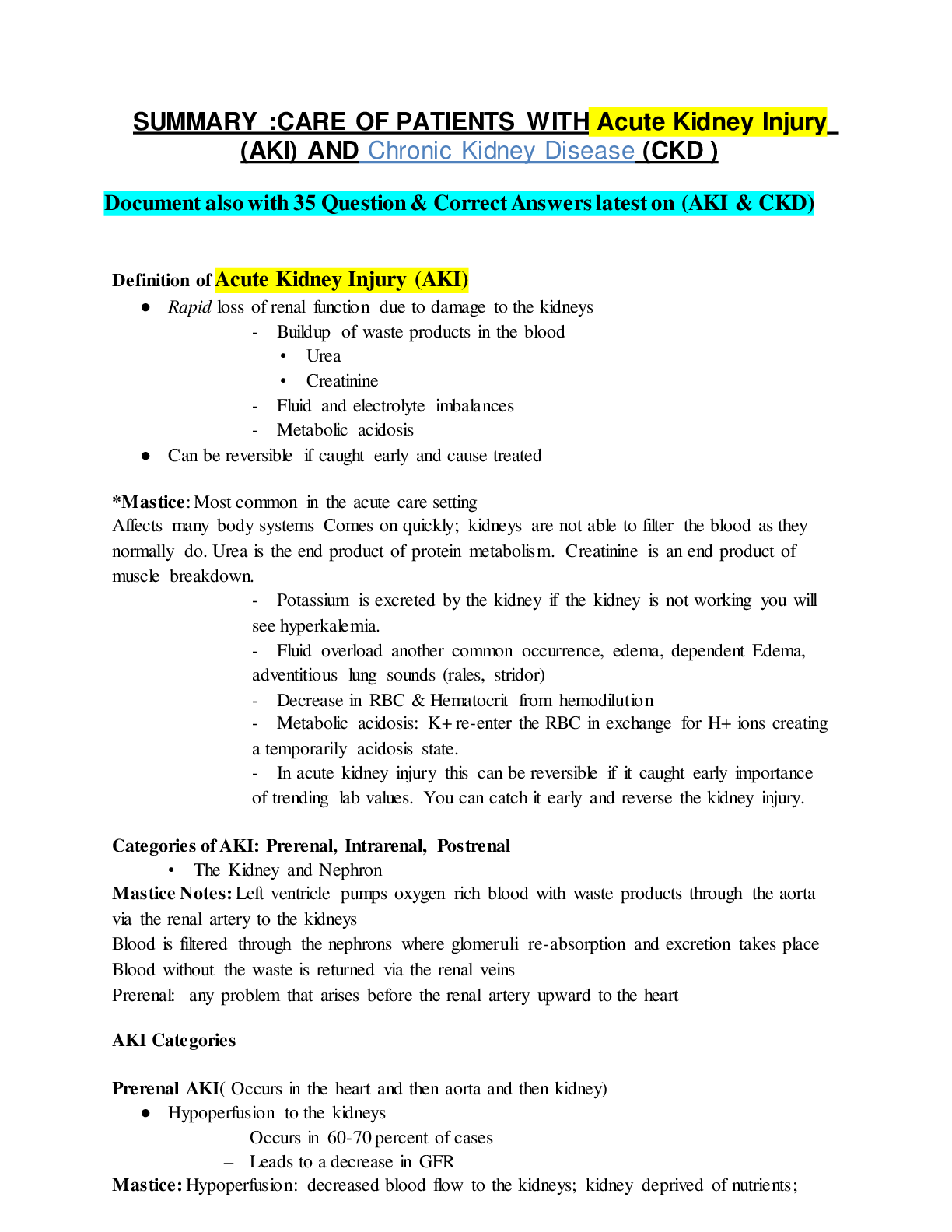
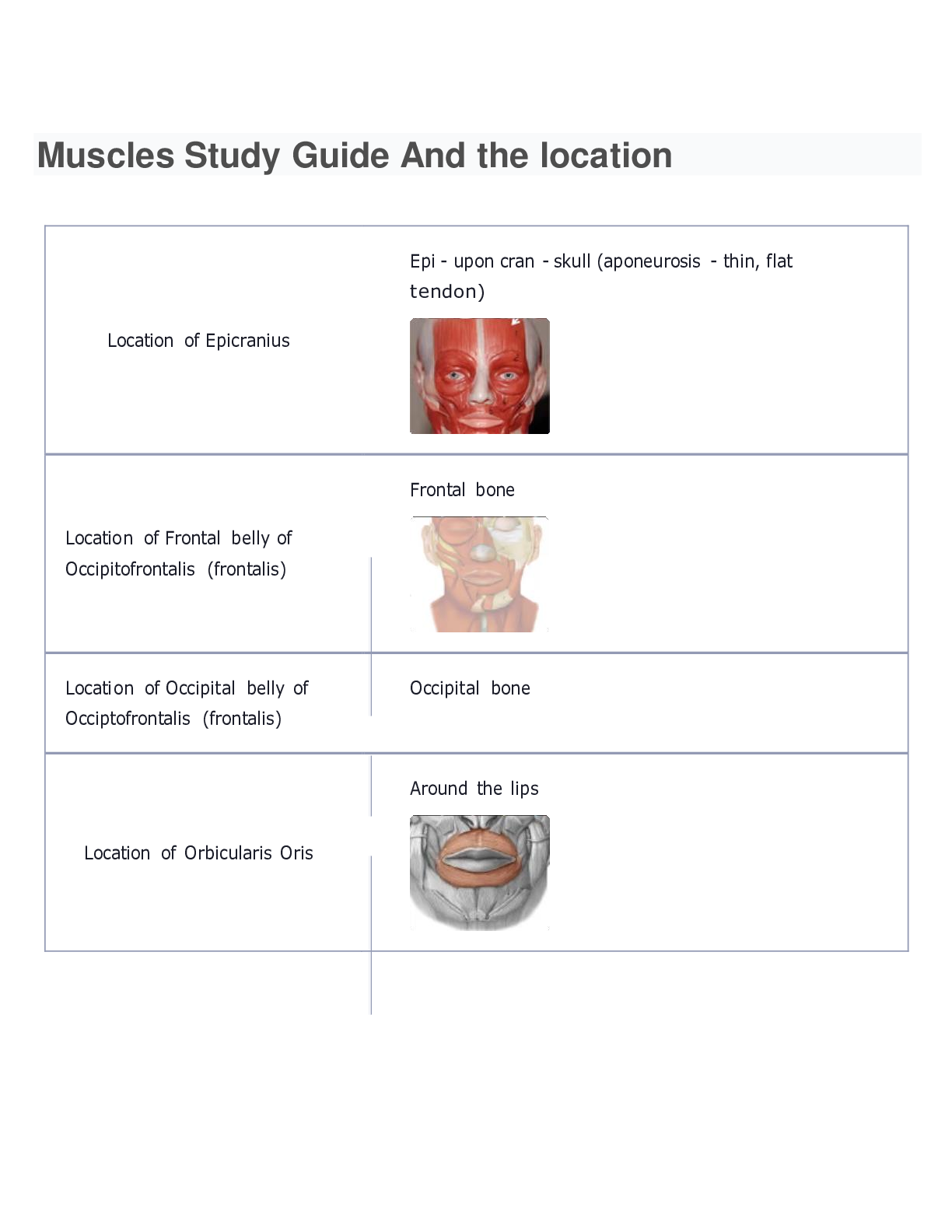
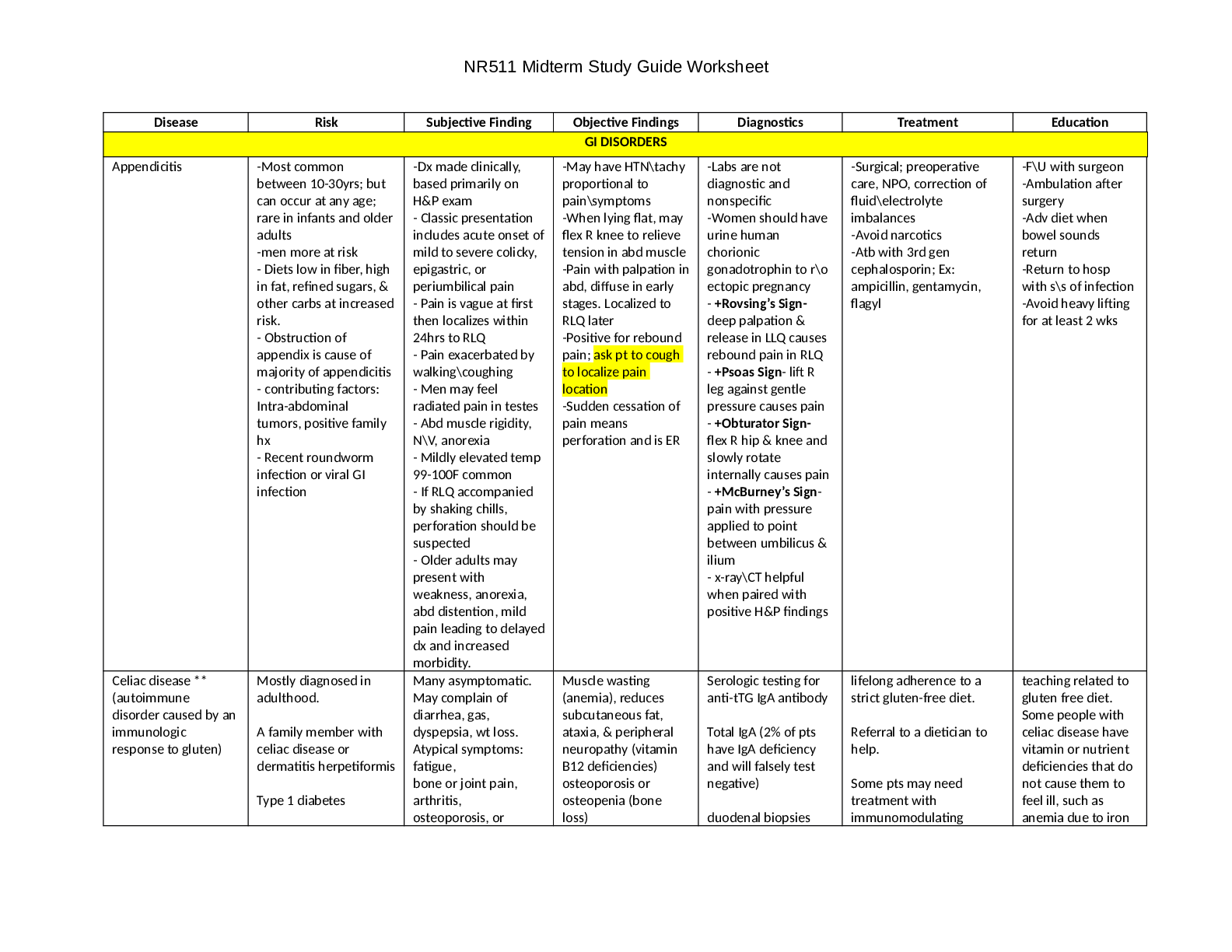
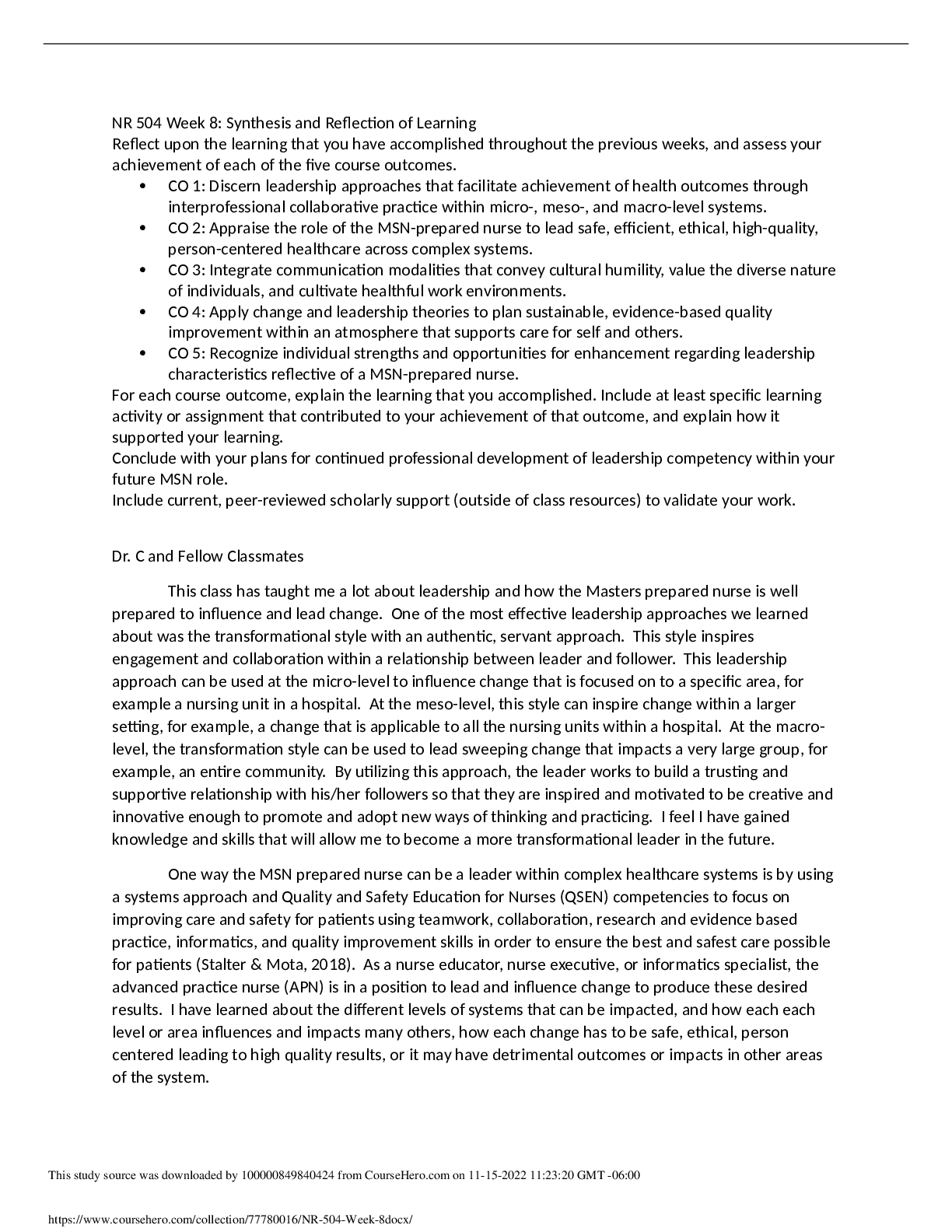
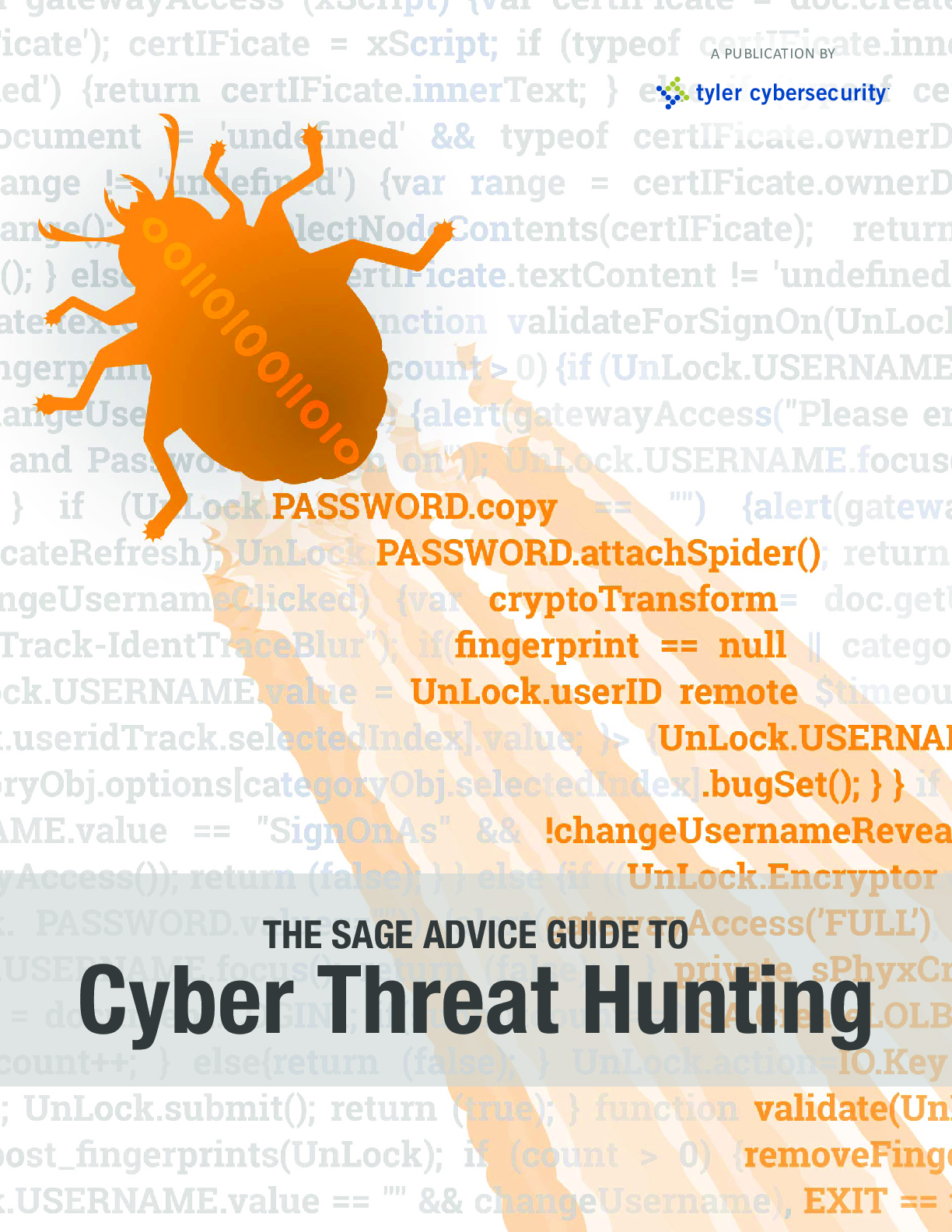
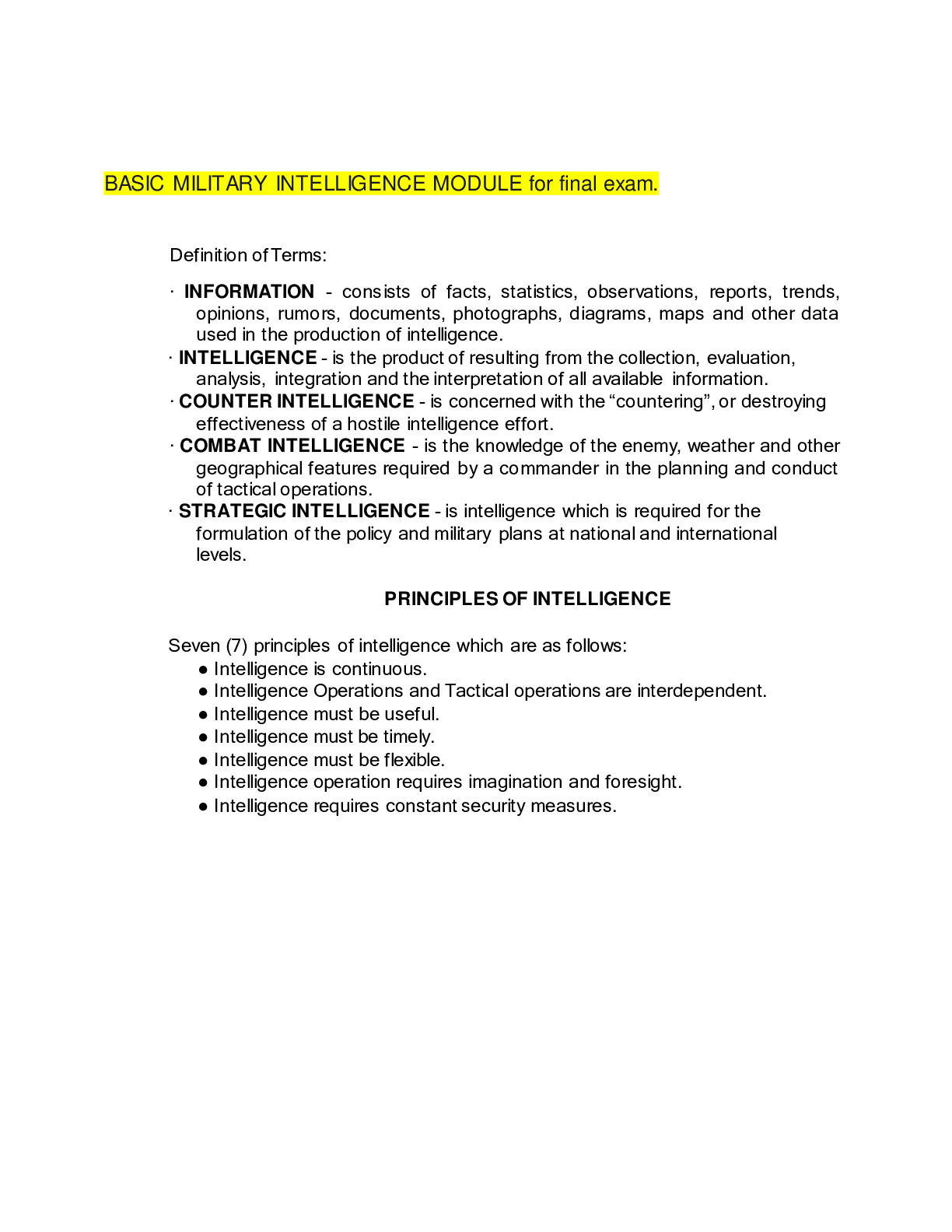
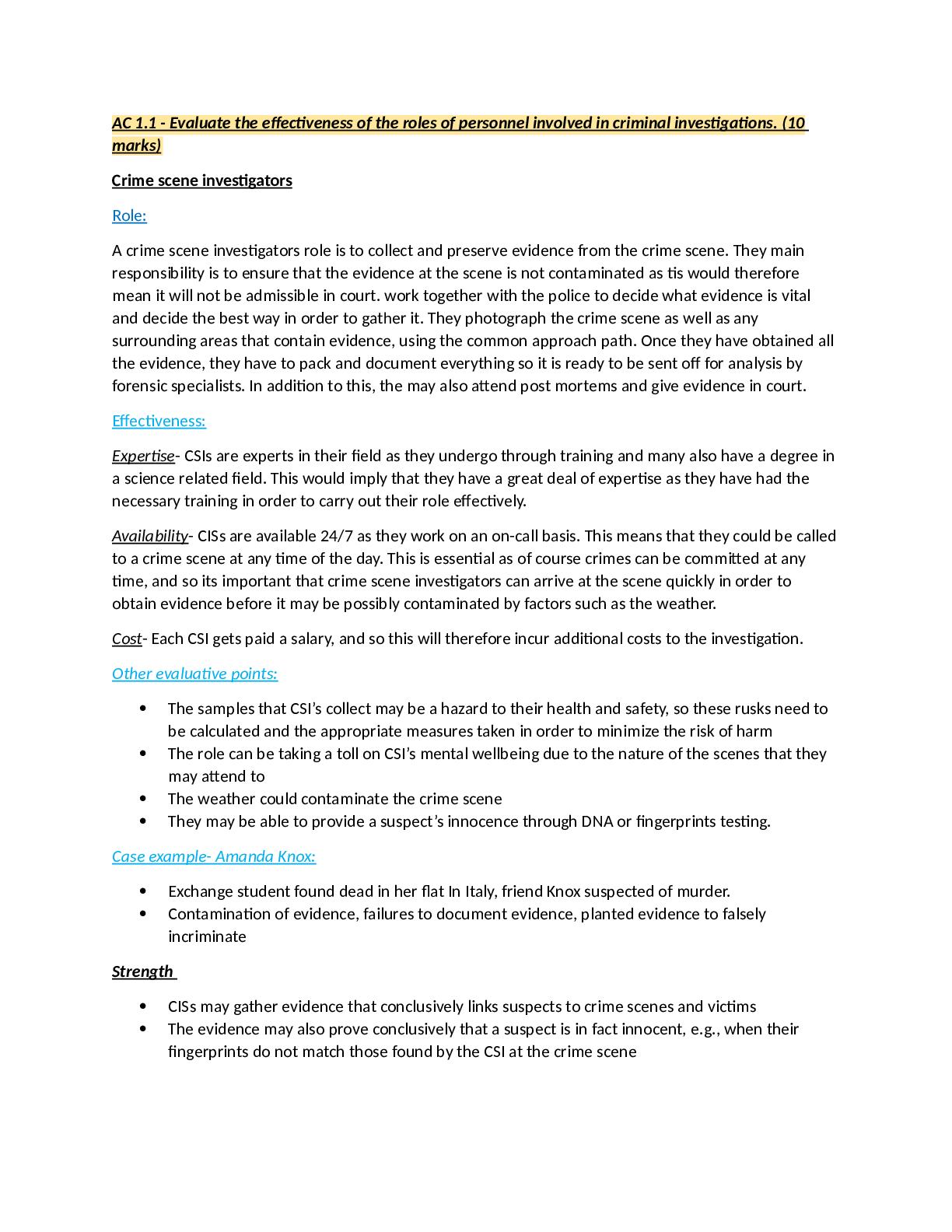
.png)

